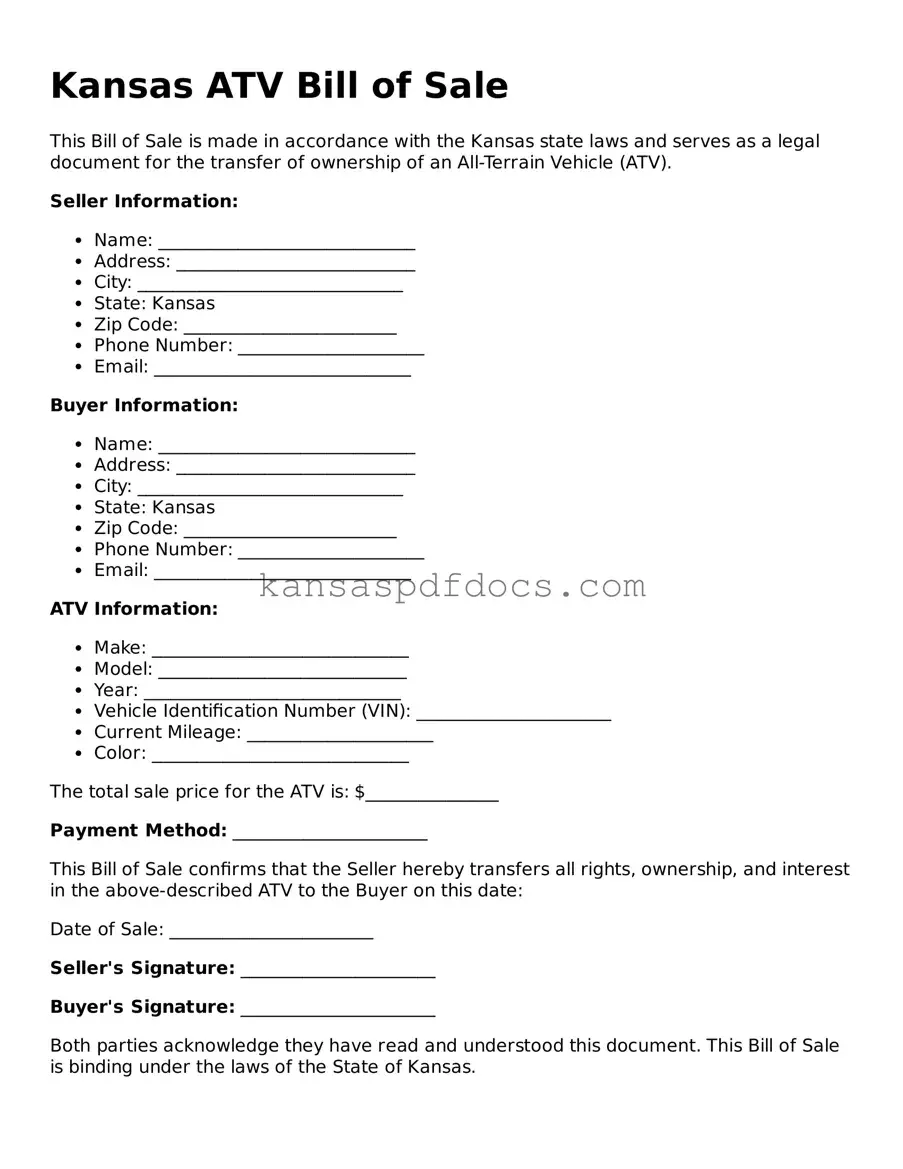Valid ATV Bill of Sale Template for Kansas State
The Kansas ATV Bill of Sale form is a crucial document used to record the sale and transfer of ownership of all-terrain vehicles in the state of Kansas. This form not only provides essential information about the buyer and seller but also details the vehicle itself, ensuring a smooth transaction. Understanding this form can help both parties navigate the sale process with confidence.
Access This Form Now

Valid ATV Bill of Sale Template for Kansas State
Access This Form Now
Your form isn’t ready yet
Edit and finalize ATV Bill of Sale online without printing.
Access This Form Now
or
Get PDF Form
